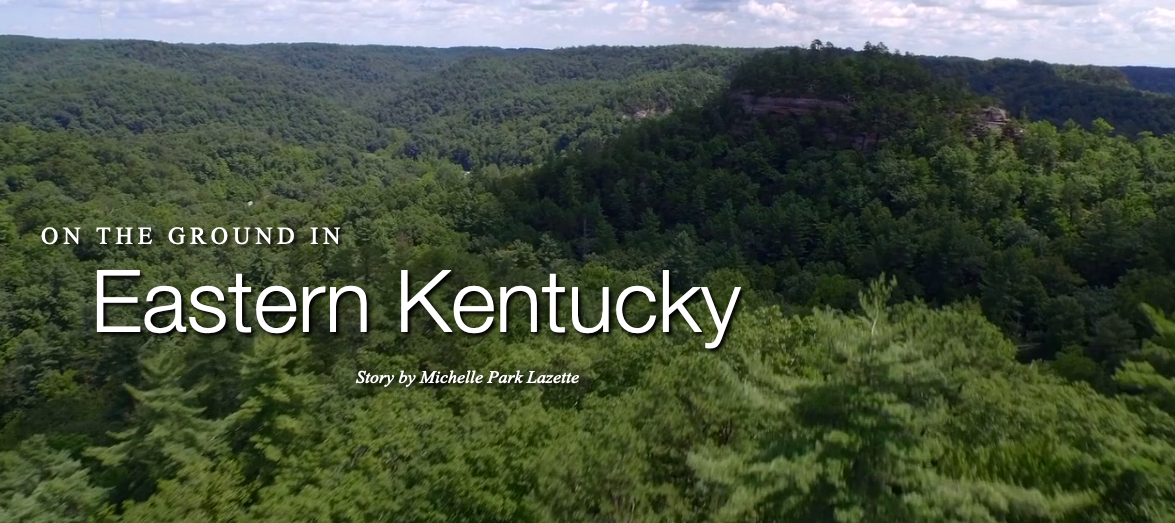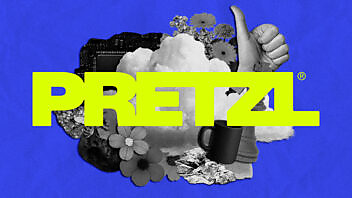This is about a woefully under-used tactic in B2B content marketing. But it’s also a metaphor for all of B2B marketing, and what’s wrong with it, and what could be so, so right with it.
What’s wrong is that we marketers think we have to know everything about the markets and the disciplines we touch. That our job is only to teach; to share our company’s expertise so prospects can educate themselves (the rather presumptuous presumption being that a better-educated prospect will always buy our stuff).
There are a few pretty serious problems with this approach and the mindset that leads to it:
- It’s not true – We really don‘t know everything, so pretending that we do is probably a bad strategy.
- People don’t like being talked at – But we all like being talked with —and, even more, being listened to.
- It closes off the most important thing a marketer can do – It closes off learning.
So what would B2B marketing look like if we released ourselves from the prison of pseudo-omniscience and admitted that we don‘t know everything that might be important to our prospects?
If we, in the words of Jay Acunzo, (in his excellent book, Break The Wheel) acted less like experts and more like investigators?
Well, a whole lot of cool things would happen.
And maybe the coolest among them is the woefully under-used tactic I referred to in sentence one: we’d make fewer scripted videos and make more B2B documentaries.
A B2B documentary example.
InVision makes design, workflow and collaboration software for designers. They’re taking the design world by storm because the software is so dang good (try taking it away from Velocity’s designers) and because their marketing is maybe even better.
The thing that launched them onto the radar screens of designers everywhere is a wonderful documentary film called Design Disruptors (also, annoyingly, covered by Jay Goddamn Acunzo in Episode 3 of “Exceptions”, his even more annoyingly good podcast).
Design Disruptors is a feature-length documentary that interviews an incredible line-up of super-smart design leaders from the companies that are killing all those companies we grew up with. Here’s the trailer:
Making a full-length documentary is weird enough for a B2B marketing team. Even weirder was their choice of distribution channel: they didn’t put it on the internet, behind a form (well, they have now); they first showed it in cinemas. Putting on over 1,500 screenings in 450 cities around the world. With red-carpet world premiers in New York, San Francisco, London, Paris and LA. (Remember folks, this is B-2-fucking-B).
The film is as good as the best docs out there. It’s packed with acute insights from brilliant people who have thought a whole lot about design.
And it went HUGE.
You should watch it. And listen to Jay’s show about it, including interviews with the folks at InVision.
But the point is this: instead of getting all these smart people to talk about InVision, or even about software, they got them to talk about the things they’re most passionate about (chiefly about how design is way more than making things pretty; how it can change the world).
Jay talks about how this turns InVision into a platform for elevating designers, not just a platform for their own brand stories.
For me, it may go even deeper than that. Because the film is, above all, a celebration of InVision’s beliefs and values.
By making it, they welded their brand in the minds of their prospects to those beliefs and values. How powerful is that?
I love content that exclusively focuses on this job. That doesn’t try to sneak beliefs and values in to other, supposedly more ‘hard-working’ content. Instead, it’s only job is to celebrate the company’s beliefs and values… in public. Nothing more.
Design Disruptors does this beautifully. And it resonated so hard with the design community, the echoes can still be heard.
Another B2B documentary-style thing: On The Ground In Eastern Kentucky
Can you think of any phrase more… conservative-sounding than “The Federal Reserve Bank of Cleveland”? It’s got it all: “Federal”. “Reserve”. “Bank”. And “Cleveland”. Even the ‘The” and “of” feel lifeless in that company.
The way federal things and reserved things and bank-like things are supposed to market themselves is… well you know what that looks like. (Shutterstock search: “handshake”).
But that’s not the way Michelle Park-Lazette wanted to market her bank. She knew that the bank was sitting on a hive of human stories. And that the work they do—including economic development in rural areas—was actually really important and interesting. And moving. And… real.
So, somehow, she persuaded her stakeholders to let her go out and find some of those stories. To do a road trip into one of the rural regions they cover… and to do two things marketers (and, let’s face it, banks) so rarely do: shut up and listen.
The result was a lovely multimedia piece called On The Ground In Eastern Kentucky. It tells four human stories about the people touched by the FRBoC: a bagel shop, a foundation, a guy whose house was being destroyed by termites… stuff like that.
It’s not a documentary film—it uses text, photos and audio—but it starts from a documentary mindset. A mindset that says, “Let’s go out and find stories.”

I heard Michelle Park-Lazette speak at Content Marketing World last year and was blown away. Not just by the quality of the work or the smarts of the speaker. But also, or maybe even primarily, about the way she got her formidable stakeholders on board for this crazy experiment.
Federal things don’t do things like this.
Reserved things don’t do things like this.
Banks definitely don’t do things like this.
But they could.
If they employed people like Michelle.
People who may not know everything but know one thing: that they definitely don’t know everything.
People who, instead of hiding that fact, embrace it and make it the heart of their content strategy.
Why B2B documentaries won’t be the next big thing but totally should be
Confession time. Velocity hasn’t really made a documentary yet.
We’ve made lots and lots of films, including everything from TV commercials to animated explainers to case stories (which, I guess are, at their best, kind of like documentaries).
And we’ve proposed making documentaries maybe ten times over the last 2-3 years. But we haven’t sold the idea yet. (My fault entirely.)
We propose them so often because we’re convinced that there’s gold in this thing called the real world. That the people our clients’ products touch are full of ideas and stories and direct, personal experiences that, if extracted, would throw a clear, new light on everything the clients believe and value.
The reasons for trying a documentary approach are pretty compelling:
- It’s refreshing – the fact that so few B2B brands are doing documentaries may be a tragedy but it’s an even bigger opportunity. An opportunity to do marketing that doesn’t scream, “MARKETING!” at the top of its lungs. All the best marketing figures out a way to do that.
- It’s authentic – Marketers spend so much energy trying to simulate authenticity when it’s right there for the taking. Go out into your world and talk to people. Bring a camera. What could be more real?
- It’s honest – It’s accepting that you don’t know everything and that you’re happy to facilitate the conversations in your marketplace instead of dominating them.
- It’s fun – And behind all the best marketing is a team that’s having fun.
- It signals cool things about your company – It signals humility. And openness. And a focus on the people you’re trying to help (and sell to).
- It teaches you things – When you set out to learn, something strange happens: you actually do learn. And that learning will guide everything you do.
Okay, be hard-nosed: throw out any three of those six points. The three remaining are WAY more than enough to justify trying this.
And if you agree that all six are good things (as I do)—that they simply must lead to even better things—then you will free up just one small chunk of budget and set out to make a documentary. To find out.
Why B2B marketers don’t make more documentaries
All of our, “Hey, let’s make a documentary!” proposals have failed because they were buried in Google Slide decks that also included other, safer, more predictable content ideas.
Ideas that are well within everyone’s comfort zone (the client’s and ours).
And in most B2B marketing departments, the predictable will always shove the unpredictable to the ground and take away its lunch money. (For really understandable reasons).
Again, this is my fault not the client’s fault. (For a more thorough self-laceration—and some stakeholder management tips—read A Stakeholder Through The Heart).
So far, we’ve failed to make a strong case for a few foundational ideas that have to be agreed to before an idea like a documentary can win some budget:
- That, for marketers, experimentation itself is not just a desirable activity but a critical one.
- That experiments imply the chance—even the likelihood—of failure.
- That certain kinds of failure are good—in fact, they’re high-fidelity indicators that something right is happening. Like testing hypotheses. Or simply trying new things to see what happens.
- That there are wonderful stories and people out there—and that these people and stories are quite possibly the most powerful assets available to us.
- That we don’t know everything. But are willing to learn things.
If you (and I) can convince our stakeholders of these fundamental ideas, than we have a really good shot at selling them that next documentary idea.
And , when we do succeed in getting approval—even for a small, single-shoot pilot project—some really good things could happen.
And if those good things don‘t happen, we will have learned enough to make the next pilot shoot better. Which, in itself will be worth that puny budget you asked for.
But if those good things do happen, we’ll be able to show our stakeholders the results and ask for the whole budget. Or, if we prefer, stick to a low-budget thing and still make it great. Shoot on an iPhone. Take public transport.
Documentaries—and the documentary mindset—are the next rich seam for B2B content marketing.
So what do you say?
I’ll try if you will.
Some other B2B documentaries out there
- “The Most Dangerous Town on the Internet” – A dark doc by Norton about the hackers in one town in Romania. So good.
- “Lo And Behold: Reveries of the Connected World” – Netscout actually went and commissioned Werner Herzog to do a doc about the Internet. It was shortlisted at Sundance! Yowza.
- “Breakthrough” – GE commissioned this series on NatGeo TV, with the A-List directors like Ron Howard. All about science and innovation.
- “The Story of Content” – The Content Marketing Institute ate it’s own dogfood back in 2015, with a doc about content marketing (featuring the glory that is me… and a bunch of unknown wannabes).
- “The Sartorialist” – Intel did a series about visual thinkers. This one’s about the fashion blogger Scott Schumann and his search for ideas.
- “The Network Effect” – Back in 2013, Cisco (and our friend Tim Washer) did a 6-part series on the impact of networks on society. Really good. But I can’t find it online anymore (wassup Cisco?) There’s a post about it here.
- UPDATE: Our client, Paddle, just released a fantastic documentary film called We Sign Tomorrow? — a behind the scenes look at their acquisition of Profitwell. It’s a stunning piece of work and demonstrates everything we love about docs in B2B
Know about any others? Please share in the comments below.

Enjoyed this article?
Take part in the discussion








Comments
Bernd Ahle Bernd Ahle Advertising May 13th, 2019
I couldn’t agree with you more, Doug. I think the big hurdle to overcome is convincing stakeholders that viewers will make the connection between a documentary and their brand without having to spell it out with in-your-face claims, offers and logos. It’s all about authenticity, real people and creating interest in the subject matter.
Doug Kessler May 14th, 2019
Exactly. I knew you’d be on board, Bernd — as a top-shelf brand filmmaker
Plug: Check out Bernd Ahle Productions here:
https://www.berndahle.com/video.html
Bernd Ahle Bernd Ahle Advertising May 14th, 2019
Thanks for the shout out Doug! I know your excellent post will get more people thinking in this direction.
Doug Gritzmacher Z-Channel Films May 17th, 2019
Love this post. I’m a filmmaker and have made several feature documentaries and docu-series for broadcast television over the past 15 years. You are right, it is a tougher sell in the corporate world, but I have been able to find a few clients whose mission is about a greater good. FirstBank is one, and we have done a few documentary-style videos for them about their customers. AARP is another we have done short “films” focused on interesting members.
And docu style I have found to be especially well-suited to the the nonprofit sector, where organizations are all about improving the lives or real people, so lots of great humanistic stories there and we’ve had the pleasure to tell a lot of those in mini documentaries for a lot of great organizations.
Doug Kessler May 20th, 2019
Thanks, Doug. I could see why nonprofits love docs. B2B brands should love them for the same reasons!
Hector Taylor Martrain June 13th, 2019
Doug this is really interesting. I suppose the challenge is showing a commercial return for the documentary budget. Maybe if the doc could be repurposed into lots of little bite sized bits that fit more conventional marketing you could get sign off. By the way if you want a good guy to make it Remco Merbis is brilliant at this; http://www.merbis.com/films
Doug Kessler June 18th, 2019
Thanks, Hector. Great point: a good documentary trawl with generate lots and lots of content to support different tactics, not just one film.
I like the look of Remco’s stuff! Thanks for sharing.